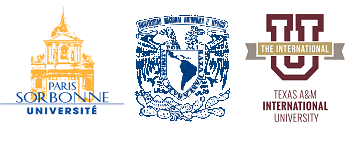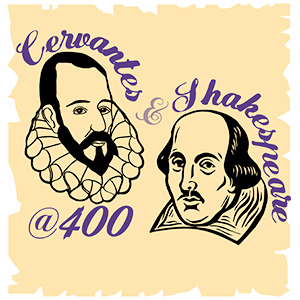Fall 2024
TAMIU Philosophy Society and Humanities Department
Can Film be Philosophy? A Public Lecture and Discussion
Jude Galbraith (10/25/2024)
spring 2021
Online Lecture: “Liberation from Gender-Based Violence"
Date and Location: Thursday, March 25, 2021 7 p.m. CST Online
Speakers and topics: This event will consist of a panel of three speakers on the topic of liberation from gender-based violence.
This event is co-hosted online by Texas A&M International University and the Laredo Public Library, and made possible in part with a grant from Humanities Texas, the state affiliate of the National Endowment for the Humanities.
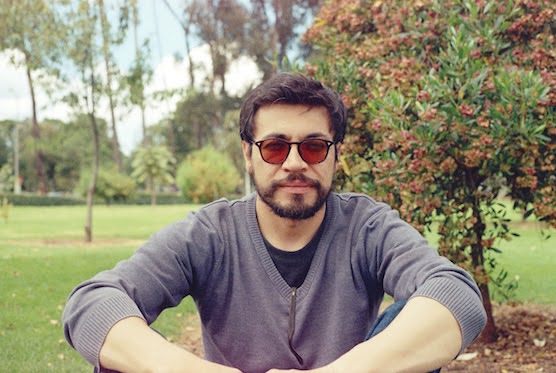
“Gender Violence and Peacemaking in Latin America”
Dr. Juan Carlos Sanchez Sierra will discuss how peace agreements to reach stability and settle dynamics of violence provide a prima facie solution for the agents at play, but nonetheless continue to preserve violence that inhibit women´s participation beyond traditional roles. In the last two decades public policies and peace agreements have been key elements for legal transitions in Colombia, Guatemala and Perú. They involve strategies to tackle gender violence in contexts where political struggles, drug trafficking and migration cast a shadow on patterns of violence. This lecture provides insight into the effects of such legislation in three different contexts shaped by distinctive forms of gender violence.
Dr. Sanchez Sierra holds faculty positions at the Universidad de Córdoba and the Universidad Nacional de Colombia. A historian, he studied African History at the École des Hautes Etudes en Sciences Sociales (Paris) and International Studies at the Birkbeck College, University of London. He earned a Ph.D. in Social & Political Thought (Virginia Tech, 2011) and was a postdoctoral Fellow at the Centro de Estudios Interdisciplinarios en Ciencias y Humanidades (CEIICH) at the UNAM (Mexico, DF) between 2011-2013. He has edited several books on youth political participation in Latin America and the effects of development in contemporary Colombia. His work includes commentary on journalist’s role in the shaping of a revolutionary imaginary of heroism and victimhood in post-revolutionary Mexican journalism.
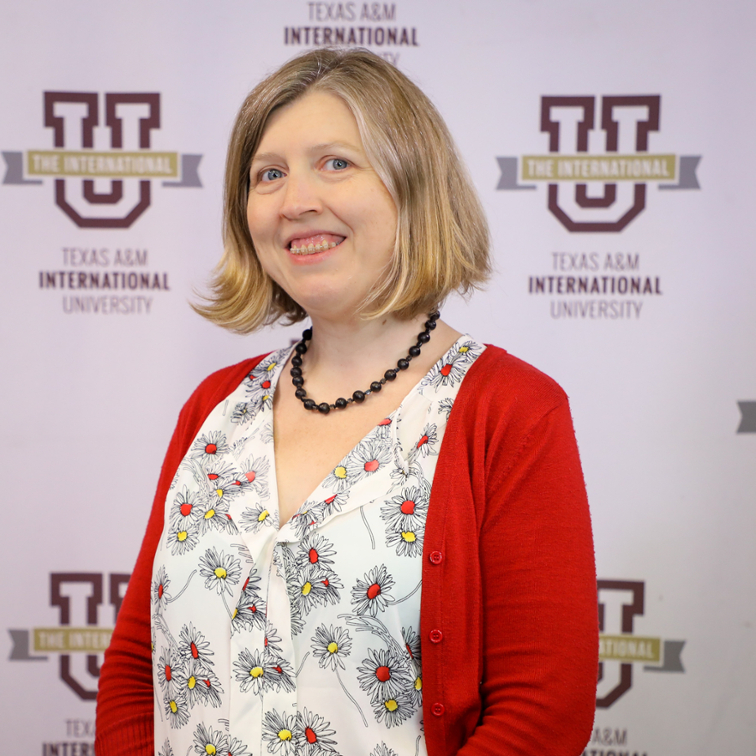
“Can legal change be liberating?"
In this presentation, Dr. Pamela Neumann will discuss both the promise and pitfalls of legal advocacy as a strategy for reducing violence against women, drawing on examples from her research in Nicaragua. Dr. Pamela Neumann is Assistant Professor of Sociology at Texas A&M International University.
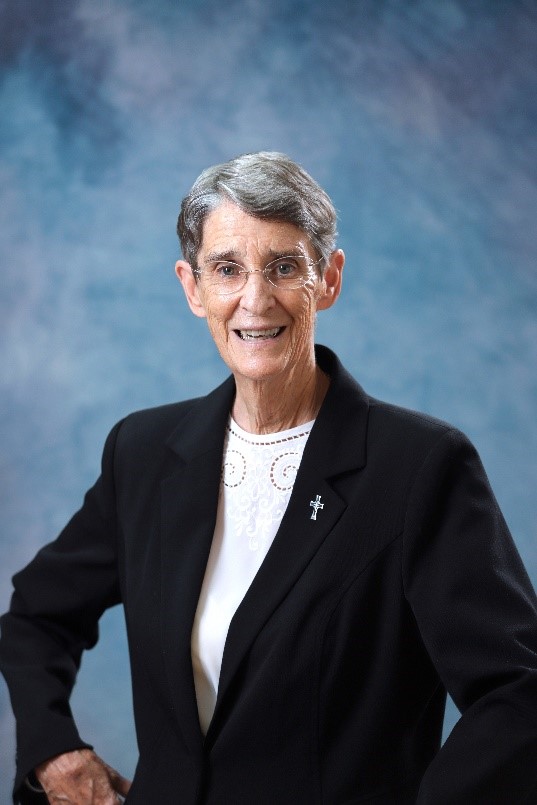
Sister Rosemary Welsh will be discussing what she has learned from her experiences working with survivors of domestic violence. Sister Rosemary Welsh is a Sister of Mercy by vocation and nurse by profession. Sister Rosemary has been in Laredo, Texas for 27 consecutive years serving in various roles and advocating for some of Laredo’s most needy and vulnerable persons. Currently, she serves as Director of Outreach Services at Mercy Clinic and Executive Director of Casa de Misericordia. Sister also visits detainees at the local detention centers, makes home visits, hospital visits and responds to invitations for public speaking. She serves on multiple boards and committees and still manages to keep up here obligations to the religious community.
Numbers, Links, and Resources Concerning Gender Based Violence:
CLADEM (Comité de América Latina y El Caribe para la Defensa de los Derechos de la Mujer – Committee of Latin American and the Caribbean for the Defense of the Rights of Women):
https://cladem.org/
Ni Una Menos (historical background on feminist activism in Latin America related to femicide): https://nacla.org/news/2016/11/01/niunamenos-not-one-woman-less-not-one-more-death
A piece Dr. Pamela Neumann wrote about violence against women in Nicaragua: https://nacla.org/news/2017/04/28/nicaragua-failure-address-violence-against-women
National Domestic Violence Hotline: https://www.thehotline.org/
National Coalition against Domestic Violence: https://ncadv.org/
State of Texas Health and Human Services Family Violence Program: https://hhs.texas.gov/services/safety/family-violence-program
TAMIU Green Dot program https://www.tamiu.edu/compliance/TitleIX/greendot.shtml
Casa de Misericordia
- Call: 1.956.712.9591
- Call: 1.956.726.0151
- Visit: www.casademisericordia.org
Love is Respect.Org
- Call: 1.866.331.9474
- Text: loveis to 22522
- Chat: www.loveisrespect.org
Break The Cycle
- Visit: www.breakthecycle.org
For Emergencies
- Call: 911
10 Warning Signs of an Abusive Relationship:
- Checks your phone without permission
- Puts you down, calls you names
- 3Extremely jealous OR insecure
- Sends insulting, threatening texts or is constantly texting you
- Isolates you from your friends and family OR tells you who you can and can't talk to
- Tells you what to do OR what to wear
- Explosive temper OR mood swings
- Makes all the decisions
- Yells at you
- Threatens you - saying " I'll kill myself if you leave me."
Online Lecture: “Immigration & Cultural Assimilation: Liberation or New Constraint?"
Date and Location: Thursday, March 4, 2021 7 p.m. CST Online
Speakers and topics: This event will consist of a panel of two speakers on the topic of immigration and liberation.
This event is co-hosted online by Texas A&M International University and the Laredo Public Library, and made possible in part with a grant from Humanities Texas, the state affiliate of the National Endowment for the Humanities.
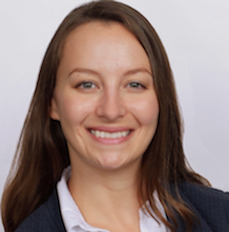
One of the talks is titled: Critical Inheritance- Teaching Resistance through Children’s Affective Conditioning by Dr. Lori Gallegos de Castillo.
Dr. Gallegos’ online lecture will explore how parents resist harmful social norms about race and gender through the education of their children. In particular, Gallegos focuses on how affective conditioning--or educating children to experience certain emotional responses--could be, perhaps surprisingly, one of the most important tools for cultivating children’s autonomy.
Dr. Gallegos specializes in Latinx philosophy, moral psychology, and the philosophy of emotion. Raised in a multicultural family in Albuquerque, NM, she’s long been interested in the problems and possibilities that emerge from cross-cultural encounters.
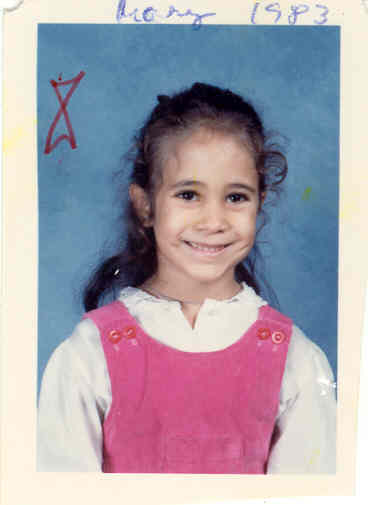
The other talk scheduled is titled: La Vergüenza Linguistica: Linguistic Terrorism and Liberation in the Texas Borderlands by Dra. Mariana Alessandri.
Dra. Alessandri’s lecture speaks to three generations at once: grandparents, who learned the hard way not to speak Spanish, parents, who learned not to teach it to their kids, and college-age students, who may not be able to talk to their grandparents because of language differences. This talk is for people who have ever felt ashamed of their language, either of not knowing Spanish, not knowing English, or having been told that their Spanglish is "fea".
Dra. Alessandri and her partner live in the Rio Grande Valley and are raising their two children in Spanish. They co-founded PUEDE (Padres Unidos para Educación Dual Excelente) which advocates for and supports Dual-Language Education in Rio Grande Valley public schools. She teaches philosophy as a way of life at UTRGV.
Online Lecture: “Black Lives, Black Liberation"
Date and Location: Tuesday, 2.23.21, 7 p.m. CST Online
Speaker: Dr. Gabby Yearwood, Director of Undergraduate Studies for the Department of Anthropology and Lecturer with the Anthropology and Gender, Sexuality and Women’s Studies Programs at the University of Pittsburgh.
Dr. Yearwood's lecture asks: "What are the ways in which liberation has been theorized, dreamt and longed for in Black social and intellectual life? Black people have had to imagine liberation in the context of enslavement, structural violence, state sanctioned violence, police brutality, incarceration and social death. What can the actions of Black people inform us about how to think critically about liberation?"
Gabby M.H. Yearwood is a socio-cultural anthropologist. He earned his Ph.D. from the
University of Texas at Austin in 2012 with a degree in Anthropology and a focus in Black
Diaspora Studies and Masculinity. His research interests include the social constructions of race and racism, masculinity, gender and sex, Black Feminist and Black Queer theory, the anthropology of sport and the Black Diaspora. He conducts research in the United States, but has also done research in the Caribbean.
This event is co-hosted online by Texas A&M International University and the Laredo Public Library, and made possible in part with a grant from Humanities Texas, the state affiliate of the National Endowment for the Humanities.
Fall 2020-spring 2021
The Liberation in the Americas Speaker Series
(Co-Hosted with the Laredo Public Library and Funded by grants from Humanities Texas, a state affiliate of the National Endowment of the Humanities, and TAMIU)
Fall 2019
Within the international framework of the 120th anniversary celebrations of the birth of Jorge Luis Borges, the Spanish Club “Siglo XXI” will present a bilingual round table entitled “Borges, the first 120 years.”
Jorge Luis Borges was born in Buenos Aires, Argentina, in 1899 and passed in Geneva, Switzerland, in 1986. He is one of the most important writers in all over the world’s Republic of letters of the 20th Century. His work has influenced many writers, poets and thinkers beyond those of the Hispanic world.
The event will take place this Tuesday, November 12, from 6:00-8:00 pm in Room 128 of the Academic Innovation Center. Seven participants will talk about various topics, namely: Dr. Irma Cantú "Borges in the Class Room," Dr. Jonathan Murphy "Borges and the US Literature," Dr. Juan Homero Hinojosa "Borges and Sciences," Mr. William Nolen "Borges and Philosophy," Mr. Alfredo Arcos "Borges and the Short Story,” Dr. Manuel Broncano “Borges and Whitman,” Dr. Nathaniel N. Racine “Borges and the Detective Fiction.” The round table will be coordinated by Dr. José Cardona-López.
This event is also part of two other celebrations in our academic community. The Spanish Club “Siglo XXI” celebrates 20 years of creation and uninterrupted cultural activity in TAMIU. Our University is celebrating its 50 years of creation and permanent contribution to professional education in this region, as well as in Texas and the United States.
This is an event open to the public. For more information, contact Dr. José Cardona-López at
956.326.2690 or cardona@tamiu.edu.
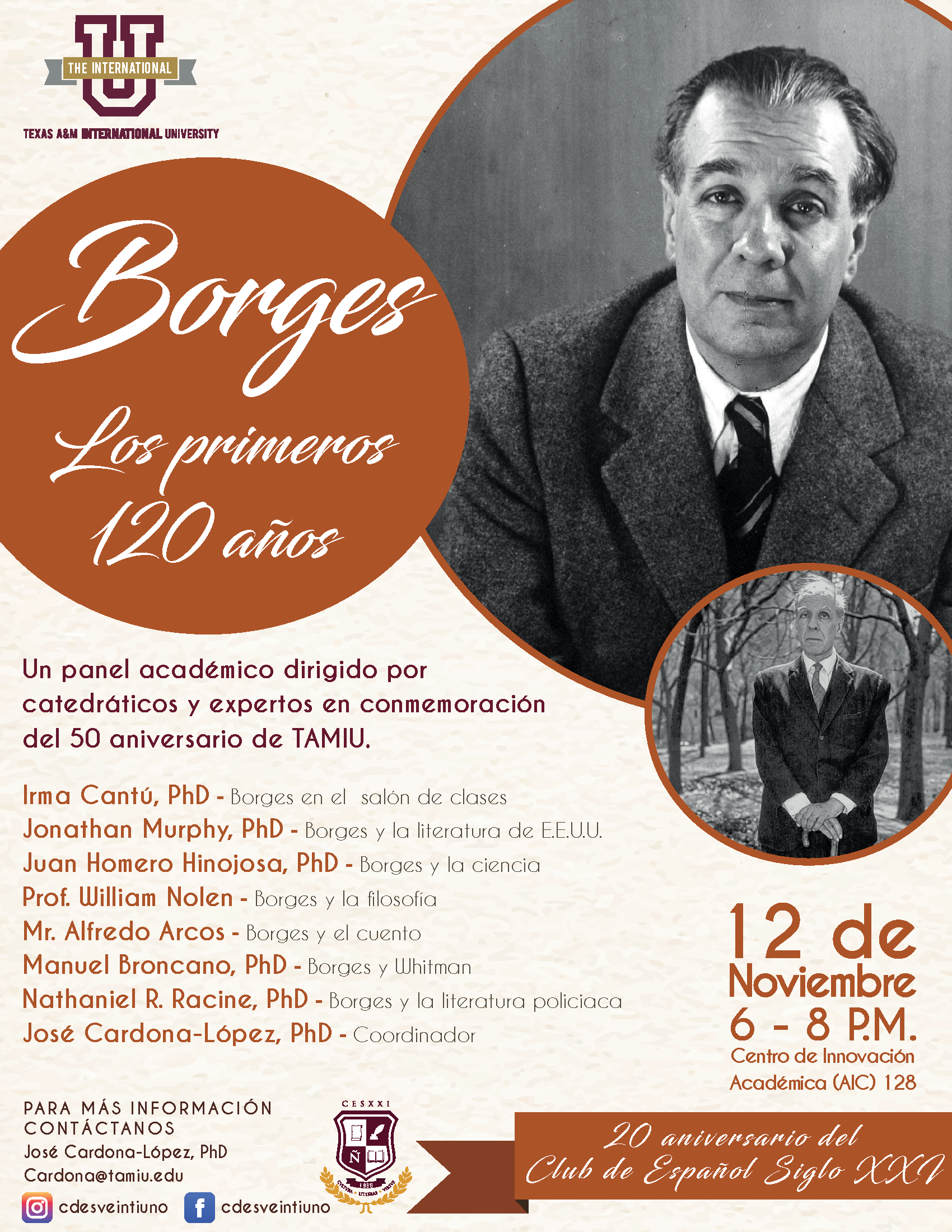
summer 2019
The seminar Escrituras plurales: teoría y práctica de la novela corta [Plural Writings: Theory and Practice of the Short Novel] - 2019, devoted to the study of Spanish American short novels or nouvelles, held its X session on June 14. It will be in Spanish and draw both scholars and students from Séminaire Amérique Latine (Sorbonne Université), Centro de Estudios Literarios (Universidad Nacional Autónoma de México, UNAM), and Department of Humanities (Texas A&M International University). This seminar is delivered virtually through a videoconference system.
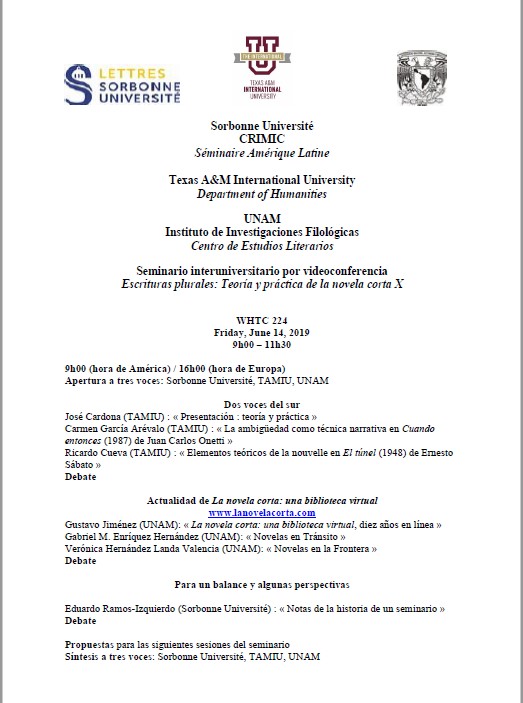
For more information, please visit:
http://crimic-sorbonne.fr/manifestations/escrituras-plurales-teoria-y-practica-de-novela-corta-x/
Se invita a estudiantes de español y literatura hispánica: Licenciaturas (cursos superiores), Maestría y Doctorado. Sin costo, abierto a personas interesadas en el tema y al público en general.
Para información comunicarse con el Dr. José Cardona-López, Department of Humanities al teléfono 956.326.2690
spring 2019
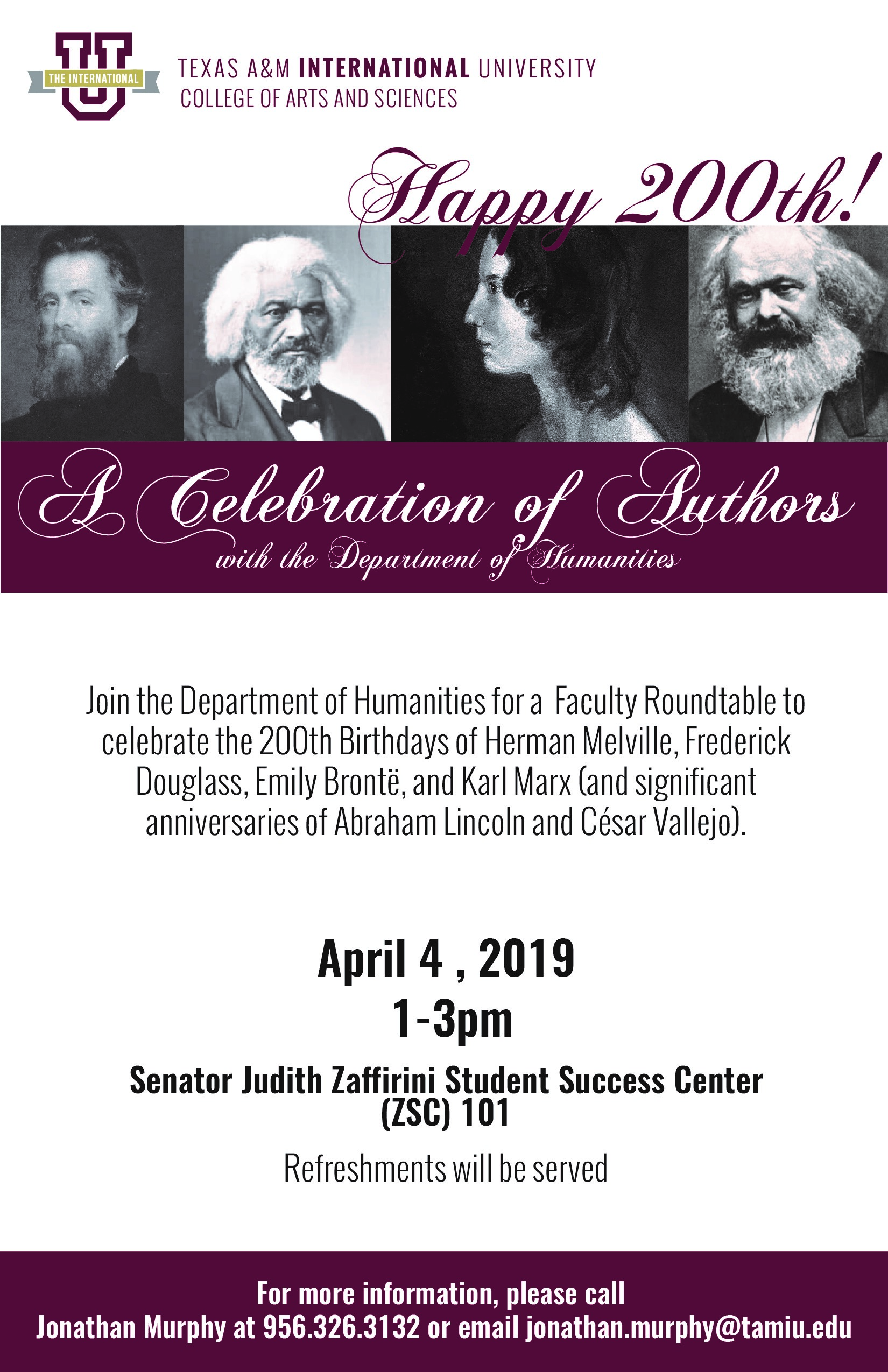
Fall 2018
Universal Basic Income Panel hosted by the College of Arts and Sciences, the Humanities Department, and the Philosophy Society student organization on Friday, November 9, 2018
On September 18, TAMIU English course ENGL 4399 Senior Seminar got a virtual visit from Pulitzer Prize-winning novelist Jane Smiley.
The course is a senior seminar, which Associate Professor Paul Niemeyer has built around the theme of how universities have been presented in fiction and drama. The first thing the students read was Smiley’s comical 1995 novel, Moo, set at a fictional Midwestern university where the values of a land-grant college are challenged by modern American cultural and political realities.
Prof. Niemeyer, who knows Ms. Smiley through Facebook, invited her to speak to the class through Google Hangouts. In a 45-minute session, she answered student questions about the novel and about her writing process, and she spoke at length about universities and students’ roles in them. Many students noted Smiley’s view that the university is really only a place, but it’s a place students must strive to improve and make better for future generations. “The academic world isn’t an ivory tower,” Smiley said. “It’s a slippery slope.”
Students reported that they took from Smiley’s visit encouraging messages that the university is a place to grow and to find out how the world works, and that all students should “be happy and do the best they can.” One student said, “Ms. Smiley was genuinely funny and seemed humble about her work.”
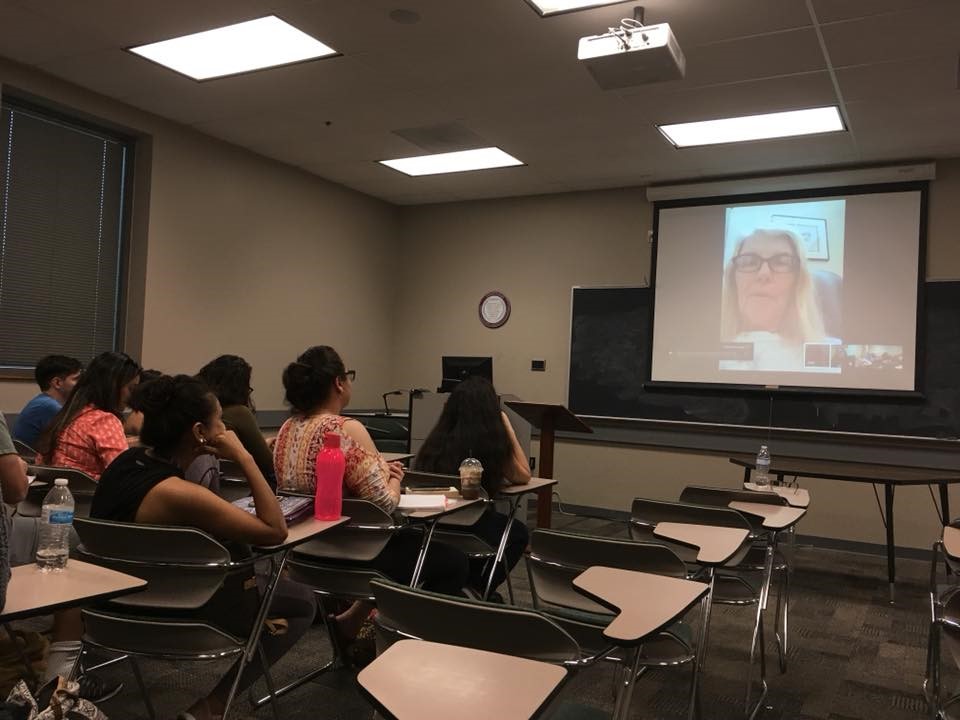
Spring 2018
The seminar Escrituras plurales: teoría y praxis de la novela corta [Plural Writings: Theory and Praxis of the Short Novel] - 2018, devoted to the study of Spanish American short novels or nouvelles, held its VII, VIII, and IX sessions during this Spring. It will be in Spanish and draw both scholars and students from Séminaire Amérique Latine (Sorbonne Université), Centro de Estudios Literarios (Universidad Nacional Autónoma de México, UNAM), and Department of Humanities (Texas A&M International University). This seminar will be delivered virtually through a videoconference system.
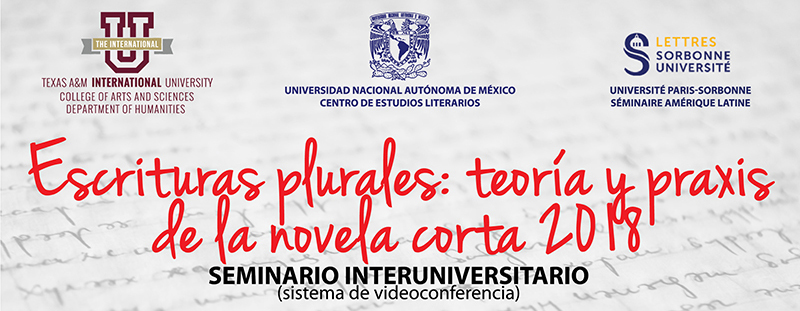
Escrituras plurales: teoría y praxis de la novela corta 2018
Seminario interuniversitario
(sistema de videoconferencia)
Sesiones:
viernes: 23 de marzo, 4 de mayo, 15 de junio
9:30 - 11:30 a.m. (Ciudad de México, Laredo) / 4:30 - 7:30 p.m. (París)
Texas A&M International University, Western Hemispheric Trade Center (WTH), Salón 224
Se invita a estudiantes de español y literatura hispánica: Licenciaturas (cursos superiores), Maestría y Doctorado.
Sin costo, abierto a personas interesadas en el tema y al público en general.
Para información comunicarse con el Dr. José Cardona-López, Department of Humanities al teléfono 956.326.2690
Monday, Feb. 19th from 2 - 3:15 pm in STC 231:
#metoo: Sexual Misconduct in the Media & Our Lives

Thursday, Feb. 15th from 11:30 a.m. - 1:30 p.m.:
Representing Blackness: Memory & Culture in STC 236

One of the world’s pre-eminent philosophers, Dr. Martha C. Nussbaum, led the Texas A&M International University Presidential Lecture Series Wednesday, Feb. 7 at 6:30 p.m. in the Center for the Fine and Performing Arts’ Recital Hall.

Summer and Fall 2017
TAMIU Philosophy Society and Humanities Dept. Lecture Series
Philosophy and Popular Culture Part 1- Fall 2017
"Apocalypse, Eutopia, & Dystopia in Popular Culture"
William Nolen- Philosophy and English (9/29/17)
"Women in Post-Apocalyptic Science Fiction"
Dr. Kathryn Klein- English and Women's Studies (10/30/17)
"African American writers and the popular press"
Tess Chakkalakal- english and african american studies (12/1/17)
IASA 8th World Congress hosted by the TAMIU Humanities Department!
July 19-21 2017
Marginalia is a Latin term that in its origins referred to the inscriptions that monks and other amanuensis made on the empty space surrounding the body of text inscribed on a parchment. Romance languages are, to a great extent, the product of marginal inscriptions on Latin manuscripts. Thus, the first manifestations of the Spanish language are to be found in the glosses that monks scribbled on the margins of Latin manuscripts to clarify and comment on words whose meaning was already obscure for the medieval reader, and those annotations were made in the new romance language, which was nothing but macaronic Latin. By extension, marginalia refers to those writings that do not belong in the canonical body of works of a culture or civilization, and is close in meaning to apocryphal. Furthermore, it can be understood as referring to the interstices existing between two or more cultures, nations, or religions. In our usage of the term, marginalia refers to those areas of the world that are populated by displaced or uprooted individuals, limbic spaces in which mere survival can be considered an illegal activity.
Due to its geographical location on the banks of the Río Grande/Bravo—being the busiest inland port in the Americas--and its unique history—including being the capital of the short-lived Republic of the Río Grande—Laredo certainly offers an exceptional site for an academic conversation on borders and frontiers. Such is the reason why IASA has chosen to celebrate its first congress in the United States.
As in our previous world congresses, this call for papers does not exclude any topic in our field of inquiry, and all proposals are welcome even if they do not relate directly to the theme of the conference. Hence, possible topics include but are not limited to:
- History and literature of the US-Mexico borderlands
- The Chicano/a experience
- American frontiers, past and present
- Geographical and cultural migrations
- Living and writing on the margins
- Liminal and hybrid identities
- The politics of translation
- Bilingualism and biculturalism
- The languages of the border
- Border crossings and transgressions
- The borders of the border
- The frontier in the US imaginary
- Beyond borders, beyond nationalism
- The borders of the body, the borders of the mind
- Globalization and “borderization”
Paper presentations will be submitted in any of the four official languages of IASA and of the conference: English, French, Portuguese, and Spanish.

Spring 2017
The English Studies, History, and Philosophy Departments, and the TAMIU Philosophy Society hosted:
A Faculty Panel Discussion Celebrating 200 Years of Henry David Thoreau!
(4/21/17 1:30 p.m. WHTC 111)
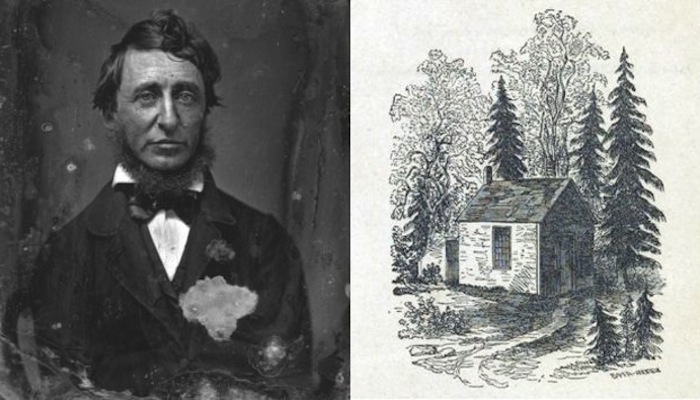
TAMIU's chapter of Sigma Tau Delta's Second Annual Solidarity with Survivors event for
Sexual Assault Awareness Month (4/19/17)
The members will be showcasing writings from various authors that support victims of sexual assault. Aimed at inspiring by these testimonials, and free to write your own words of solidarity and encouragement. From 12:00 noon to 5:00 p.m. in the Student Center Rotunda.
TAMIU Philosophy Lecture Series: Inside the Artist's Studio
(An Interview with Artist Mauro Martinez- April 7, 2017)
The seminar Escrituras plurales: teoría y praxis de la novela corta [Plural Writings: Theory and Praxis of the Short Novel]
devoted to the study of Spanish American short novels or nouvelles will held its IV, V, and VI sessions during this Spring/Summer of 2017. It will be in Spanish and draw both scholars and students from Séminaire Amérique Latine (Paris-Sorbonne University), Centro de Estudios Literarios (Universidad Nacional Autónoma de México, UNAM), and Department of Humanities (Texas A&M International University). This seminar will be delivered virtually through a videoconference system, starting this Friday, March 31 at Western Hemispheric Trade Center, room 224, at 10 a.m. - 12 p.m. (Ciudad de México, Laredo)/ 5 - 7 p.m. (Paris).
The English Studies' "Valentine's with Jane Austen Events" (February 2017)
TAMIU Philosophy Lecture Series:
Dr. Mark Menaldo "Authenticity and the Art of Deception in Niccolo Machiavelli's The Prince" (February 10, 2017)
Fall 2016
TAMIU Philosophy Lecture Series:
Dr. Ursula Klein "Queer Interventions in Aesthetics & the Male Gaze" (November 18, 2016)

Abstract: In the 1970s and 80s, writers and thinkers from different but related fields became interested in how gender is represented in visual culture, whether in art or in the media. With the 1970s feminist and gay rights movements, increasingly larger groups of writers and thinkers began investigating notions of representation and identity. Art historian John Berger and film theorist Laura Mulvey wrote influential works in which they described one of the pervasive modes of representation of women in the Western world: whether in art or on screen, women seem to be on display and objectified for a viewing subject that is implicitly male, implicitly consuming the woman on display. The notion of the “male gaze” became a central term in film studies that other theorists engaged and deployed in their analyses, but also that they questioned. One of the biggest challenges to Mulvey’s work, specifically, was the work of queer theorists, who began exploring the gaze of gay men and lesbians. These viewer, they argued, would not “consume” women on screen in the same manner as straight men, and that Mulvey’s notion of straight women who must identify with the objectified actress on the screen would not hold easily for other populations. This lecture will explore Berger and Mulvey’s influential ideas, as well as some exciting queer interventions into the realm of aesthetics, the male gaze, and representation, including gay male reclamations of Hollywood divas; the lesbian gaze; and camp aesthetics.
Dr. Manuel Broncano "Ekphrasis and Mimesis: The Boundaries Between Literature and the Arts"
(November 4, 2016)
Abstract: My presentation will briefly approach the theory and practice of ekphrasis in the history of literature against the background of the ongoing philosophical discussion about mimesis, from the Greeks to the Romantics. The concept of ekphrasis refers, in its most basic definition, to a literary text that speaks to or of an artistic object, and thus refers to a transgression of the boundaries between various forms of art. For Plato, this mode of expression would represent a farther removal from the ideal and would therefore be an even worse kind of lie than that of the artistic object itself. As Peter Barry observes, “The Greek roots ek and phrasis in combination simply mean 'speaking out' or 'out-speaking', which can also bear the connotation that what the poem speaks of lies unambiguously 'outside' the poem, rather than within the poet's imagination, even though it is not in the 'real' world, but in the parallel universe of art” (Barry 155). In this respect, ekphrastic literature can be considered as a quintessential Postmodernist mode, since its referents are not to be found in “reality” but in art itself. For the Romantics and their anti-mimetic conception of artistic creation, ekphrasis becomes a favored mode as a valuable tool in their search for the totality of the sublime. In the last part of my presentation, I will analyze in some detail ekphrasis in Melville’s Moby Dick and its role in turning the novel into a treatise on the interconnectedness of literature and the arts.
English Studies and the Spanish Department Sponsor:
A Month Long Celebration of 400 Years of Literary Giants Cervantes and Shakespeare (October 2016)
Contact
Department of Humanities
Academic Innovation Center (AIC) 313
Phone: 956.326.2470 | Fax: 956.326.2459
